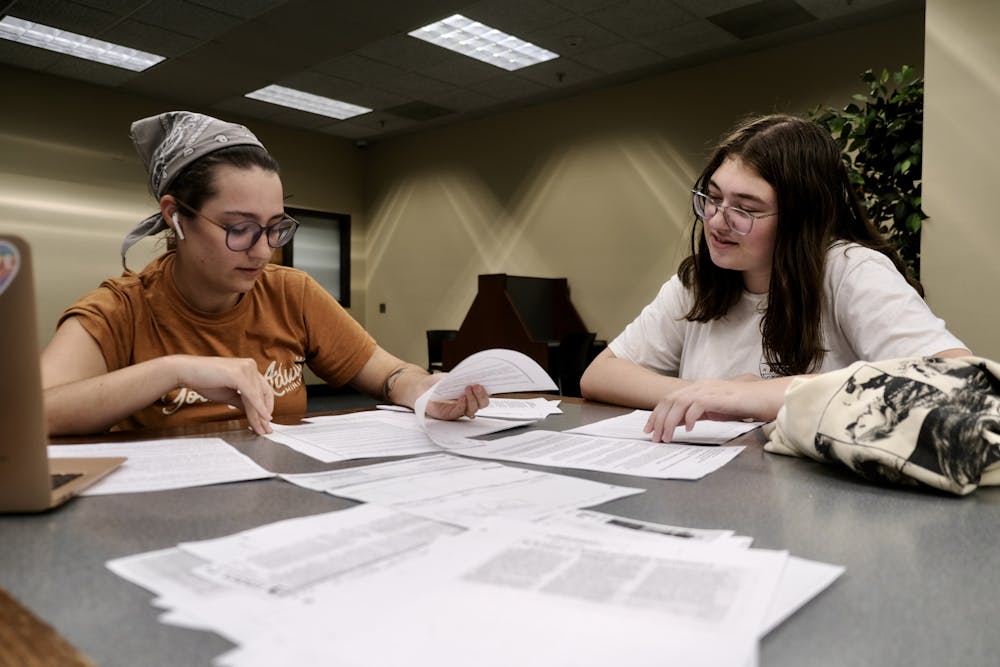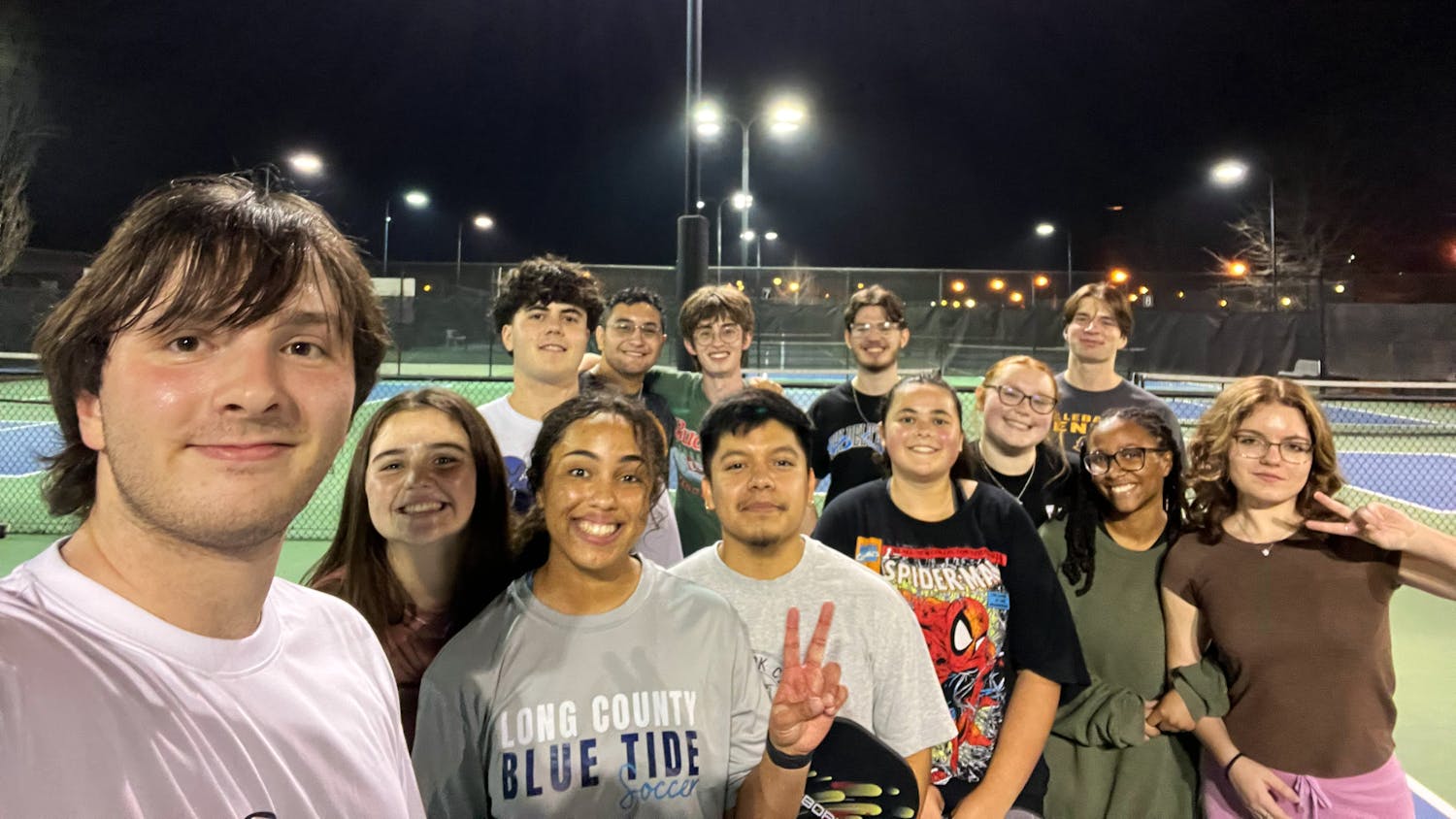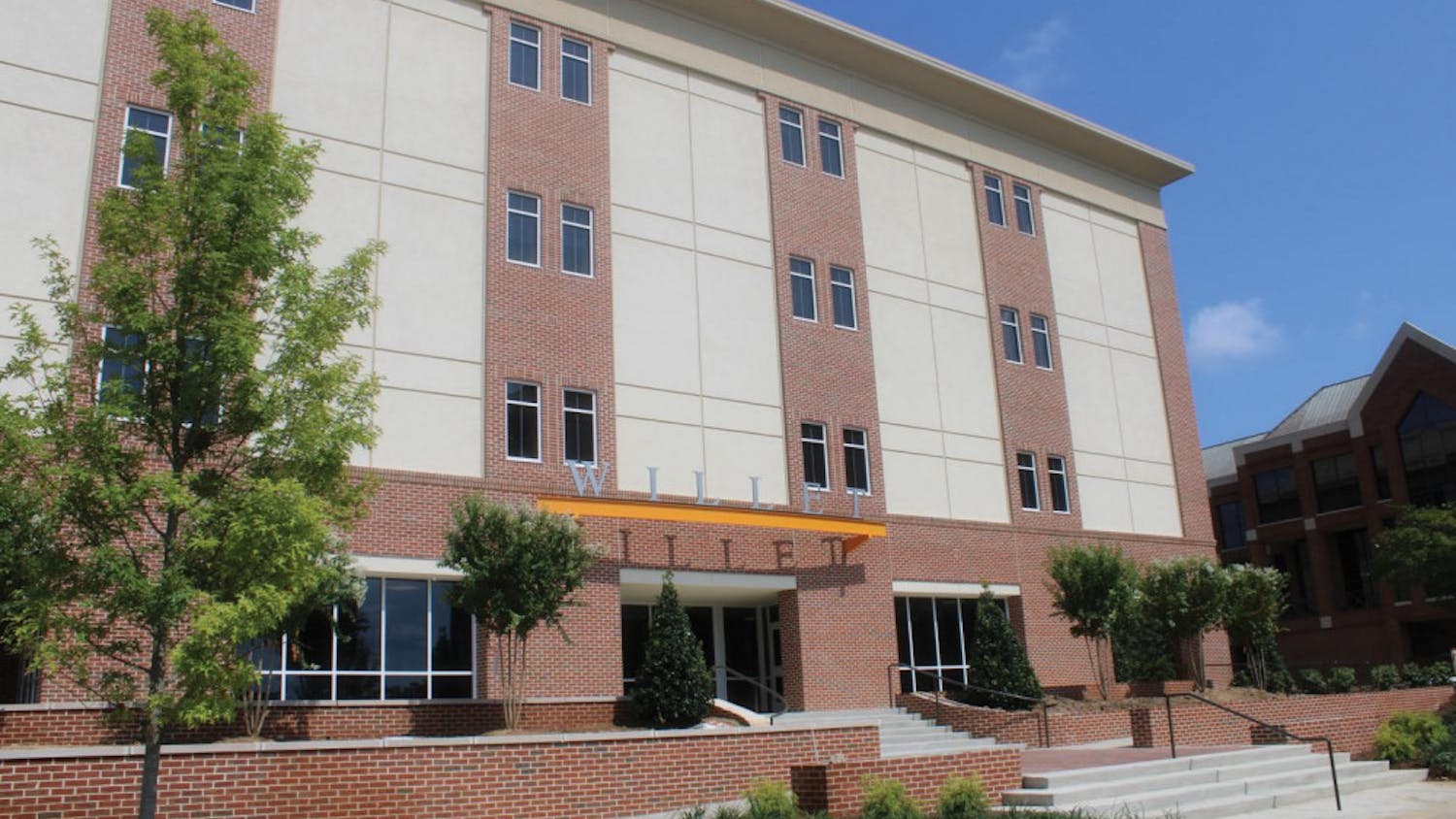A team of Mercer students are working on a research project that aims to tell the story of Mercer’s queer history. The project is temporarily titled “We are Here!” and is a partnership between Common Ground (Mercer’s official LGBTQ+ and Ally organization) and the University Archives.
The project was founded by Bekehm Mohn ‘25. Mohn has been an advocate for queer spaces at Mercer since they first arrived on campus. They started the project as part of a larger campaign called “My Name Matters.” Mohn said they hope to educate students about queer culture at Mercer.
“I want Mercerians to show up the first year and not feel like they don't have any representation or there isn't anyone here that they can talk to or even look back upon in our history,” Mohn said.
Mohn said there are many people, including professors and past students, who have worked to make Mercer more inclusive for the queer community in the past century, and their names have not been credited.
“At the end of day, my goal is the credit. We need to credit these people that worked for this and tell these students this is what happened and this is what you can have access to now,” Mohn said.
At the beginning of the fall semester Mohn spoke with Alumni Daniel Williams ‘07, head of the archives at Mercer. Mohn asked Williams what information the archives had on the subject of queerness throughout the university’s history. Williams produced two folders. One smaller folder was about the Mercer Triangle Symposium, Mercer’s first queer club, and the other, much thicker folder contained information about the Georgia Baptist Convention. There was little material related to queerness beyond this.
According to Williams, Mohn was not the first to turn to the archives seeking information. Patrons have recently been asking these questions as well. Unfortunately, the archives are missing most of the answers.
“There's a lot of gaps in the history of queer history here at Mercer,” Williams said. “We're getting people asking that question and then not being able to answer it necessarily beyond saying, here's a folder about the convention.”
Looking at Mercer's roots with the Gerogia Baptist Convention gives curious seekers a better perspective on why the organization has dominated the account of Mercer's queer community.
Mercer was founded by Baptists in 1833 and named after Jesse Mercer, a well-known leader in the Baptist community. The university was a part of the Georgia Baptist Convention until 2005 when long-lasting tensions regarding differences in belief came to a head. These differences ultimately caused the Convention to sever its ties with Mercer.
In November 2005, Mercer Triangle Symposium hosted a “coming out day” event on campus. The event was publicized in The Cluster, along with the names of 29 faculty and staff members who supported the club. According to Williams, who was a junior at Mercer at the time, tensions resulting from differing ideologies between the university and the Convention had been mounting for years, but the coming out event was the last straw.
The opening line of an article published in the Baptist Press in November 2005 read: “An organization to promote the gay-lesbian-bisexual-transgender (GLBT) agenda at Mercer University is raising eyebrows among Georgia Baptists who have begun questioning the integrity of the historically Baptist university.”
While President Kirby Godsey did not personally agree with the “beliefs” of the Triangle Symposium, he argued that Mercer’s mission statement encouraged open discussion as part of the educational process and that students had a right to assemble to discuss these topics.
Godsey responded to the controversy in a statement to The Christian Index: “We affirm our historic values, while including within them an unwavering devotion to the open search for truth, to religious and intellectual freedom, and to respect for the diversity of beliefs among the members of the University community.”
After a final vote in 2006, the Georgia Baptist Convention voted to sever ties with Mercer.
According to Mohn, many students don’t know this part of Mercer’s history. The “We are Here!” project also aims to expand the narrative so that the discourse about queer history doesn’t focus solely on the Convention, but on other voices at the time as well. Mohn said it’s a problem that the story starts and ends with this issue; they want to discover stories beyond what information is currently available.
“We're pulling personal statements from students, personal statements from faculty, interviewing big people that have been alumni or involved in these events in any way or have made a statement about these events, whether they're positive or negative,” Mohn said.
Williams said the “We are Here!” research will be helpful for the archivists to fill in the gaps in queer history at Mercer so the story can be better told in the future.
“Someone is willing to do that research and willing to partner with us. That's a win-win there,” Williams said.
Mohn put up posters and flyers to recruit other students to help with the research. Since the beginning of the semester, several students have joined the project. One of these students is Willow Crabtree ‘26.
Crabtree has been a part of Common Ground since their freshman year, but they first heard about the project when a professor announced that the campaign was looking for more researchers. Crabtree was immediately interested.
“I'm hoping, at the very least, having this information available might make it easier to show that we've always been here,” Crabtree said. “This isn't just a new fad or something like that, this is part of Mercer's history.”
One of the reasons Crabtree chose Mercer was because they saw that the university had queer spaces on campus that weren’t isolated from the rest of the community.
“That was one of the big things when I was wanting to look at a small liberal arts college in the South because it was already kind of hard, was that I wanted to feel safe,” Crabtree said.
Crabtree said the group is in the process of going through documents found in the Archives, including past yearbooks and issues of The Cluster, and finding sources for interviews.
Students will continue conducting interviews and research throughout the year. The end goal is for the research to be digitally accessible in Mercer’s archives. The students plan to display and present the results of their research next October, on National Coming Out Day, a nod to the students in 2005 who laid the initial foundation.
Eliza Moore ‘24 is an English and Journalism student at Mercer University. She is now in her second year working as The Cluster’s News Editor after a semester abroad. She is currently producing work for Macon Magazine and Georgia Public Broadcasting in addition to her work with The Cluster. She loves breakfasts, the ocean, and all things related to writing.





